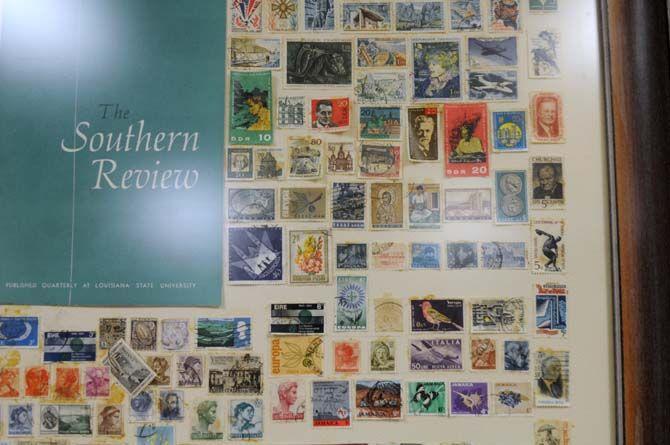“Yale, Johns Hopkins and LSU,” were, according to Mark Bauerlein, cultural critic and professor of English at Emory University, the three major institutions from which the 20th century’s taste for literary research emerged.
LSU? A national hub for the study of literature akin to the elite Yale and Johns Hopkins?
Bauerlein is undoubtedly referring to the university’s historical status as an early stronghold of New Criticism, an immensely influential movement in literary theory which famously placed an exclusive focus on the formal qualities of a given text.
Two particularly distinguished faculty members who taught and studied here in the early ’30s made critical contributions to the emerging movement: critic and novelist Robert Penn Warren, author of the Pulitzer Prize-winning novel “All the King’s Men,” and critic Cleanth Brooks.
Together they forged methods of close reading that would dominate literary study in universities for decades, up until New Criticism’s influence waned with the rise of fresh theoretical imports from continental Europe, most famously through the work of thinkers like Michel Foucault and Jacques Derrida—another campus favorite with ties to our philosophy department.
Warren and Brooks were also instrumental in founding the “Southern Review,” a nationally renowned literary journal which, throughout its over 80 years in print, has published the likes of T.S. Eliot, W.H. Auden, Wallace Stevens, Eudora Welty and Joyce Carol Oates. Time magazine deemed it “superior to any other journal in the English language.”
In preparing for this piece, I made a point to look through the journal’s online archives and was astounded by the absurd number of literary legends that filled its volumes, especially the older ones.
A Reveille article from 2019 boasts that the presence of the Southern Review on campus prompted F. Scott Fitzgerald to refer to our university as the “Athens of the nation.” I could find no other source to back this up, but I am willing to take the leap of faith on this one…it is just too good to let go of.
The department’s mid-century prosperity was the result of then-Governor Huey P. Long’s extensive expansion of higher education in the state.
The years of the Long era were a bit of a golden age for arts and letters here on campus. These were the years of the famous “Reveille Seven,” who, after printing critical remarks about Long, revolted against attempts at faculty censorship.
Not long after, in 1942, the German political philosopher Eric Voegelin began a sixteen-year stretch at the university. His writings on religion and totalitarian ideology would go on to be massively influential. In fact, the political science department’s Eric Voegelin Institute is dedicated to his legacy.
After name dropping LSU, Bauerlein goes on to reminisce on the supposedly long-lost excitement of literary study throughout the 1960s and ’70s in which one “felt the air in the departments crackling with ideas.” For him, the field’s turn toward and eventual oversaturation with the methods that eclipsed our homegrown New Criticism are to blame for a cataclysmic breakdown for literary study in American universities.
Whether literary study has truly declined since the mid-20th century, I cannot tell you; I’ve only been associated with an English department for two and a half years as an undergraduate.
What I can say is that I have had no shortage of air-crackling moments throughout my time studying English here.
Whether it be Dr. Chris Barrett reflecting on what English Renaissance can teach us about the climate crisis, reading a review of Dr. Maurice Carlos Ruffin’s latest short story collection in The New York Times before heading to his class, or hearing the recent news of alumna Dr. Mona Lisa Saloy becoming the state’s poet laureate, our English department clearly maintains its august tradition of literary excellence.
Evan Leonhard is a 21 year-old English and philosophy junior from New Orleans.
Opinion: LSU English department much more historical than many may think
November 9, 2021
Stamp collection from submissions sent into The Southern Review, a quarterly magazine founded in 1935, printed by LSU press, co-founded by Robert Penn Warren, Cleanth Brooks, and Charles W. Pipkin.







